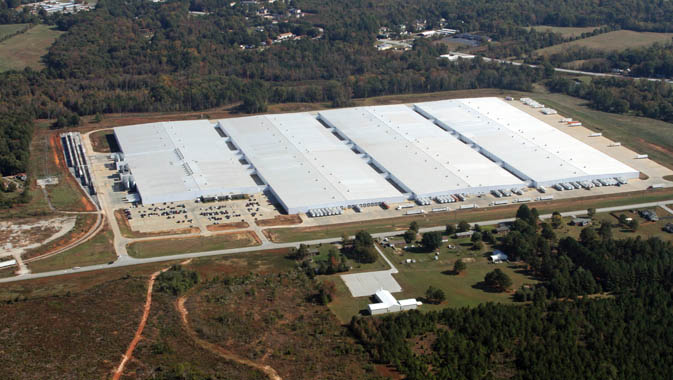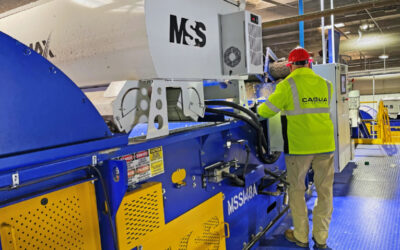Laurens County is an area with an abundance of opportunity for businesses seeking expansion or relocation. As a “gateway to the upstate” of South Carolina, Laurens has seen substantial industrial growth in recent years, a testament to the area’s developing infrastructure and growing significance in the wider national market.
~
Its pool of highly trained workers, an unbeatable location, one of the most ambitious scholarship programs in the country and an attractive tax incentive program means Laurens County is at the forefront of South Carolina’s evolving economy.
Only a short drive from Spartanburg, Columbia and Greenville, Laurens County has a small neighborhood feel with big town opportunity. Laurens County’s advantageous position in the central southeast continues to attract industries seeking access to the wider national market and the promise of accessibility that only Laurens can offer.
The upstate of South Carolina has a long legacy in manufacturing and other materials-based industries as a result of its heavily traveled road and rail routes. The two features intersect in Laurens. Home to two interstates and several state highways, Laurens has unmatched potential for firms seeking ground transportation and distribution capabilities.
As the area is an important player in polymers and plastics, direct access to a freight rail line through the county has also served as a significant benefit for distribution of raw materials and goods. If road and rail were not enough, major seaports and several international airports are within a short drive as well.
A leader in industry and innovation for decades, Laurens County has played a crucial role in creating the products and materials that make daily life possible. The county’s legacy of hard work has driven local economic progress in the last ten years.
At the Laurens County Development Corporation, Executive Director Marvin Moss and Deputy Director Jonathan Coleman helped lead the county’s campaign for growth. The two provided insights into what has taken Laurens County from a regional player to a national competitor.
The textile and agricultural industries are where Laurens got its start and that innovative spirit has remained at the heart of the county’s development throughout its homegrown industrial revolution. Today, Laurens County is a hotspot for a diverse range of sectors, including automotive, advanced materials, plastics, metalworking and distribution. Mr. Coleman affirms, “I would say our local economy has never been better. We have recruited a lot of jobs and industries here.”
Most professionals know that there are definite benefits to choosing to develop in rural areas, but Laurens is unique in that it provides those benefits while simultaneously presenting a quality of life which is generally reserved for metro areas. A short distance from Charlotte and Atlanta, Laurens County offers the economic incentives of rural development, with the benefits of urban accessibility and infrastructure.
According to Mr. Moss, “Laurens County is moving in a really positive direction from an economic development standpoint. That is something we are really proud of here.”
The price of land, cost of living and cost of labor are substantially lower in Laurens County than elsewhere in the state, but the economic benefits for business owners are much bigger. Being a rural county, the tax incentives in Laurens are substantially greater than more developed areas. Moreover, Laurens position within a heavily traveled corridor and interstate system means shipping to and from the county avoids the heavy traffic of a city while maintaining all the benefits of inter-state road accessibility.
Laurens has a unique business-centric infrastructure that enables new and growing firms to break ground, and get working quickly. Time is money, and, in Laurens, there is a countywide commitment to helping companies get up and running as fast as possible.
Affordable land has always been a major draw for businesses headed to Laurens, but today, the land in the county is more equipped for business than ever before. With several site-certified, shovel-ready locations in the area, businesses come to Laurens with the assurance that the land is prepared, permitted and ready for use. These master-planned sites are generally between one to two miles of a major interstate giving companies highway accessibility from the get-go, as well as the opportunity to use the rail transport that intersects the county several times over.
Where many rural areas fall short is in the ability to provide the people power to drive major economic growth. Laurens County directly borders the highly populated counties of Spartanburg and Greenville. As a result, the county has direct access to crucial streams of skilled laborers and potential customers alike. In this way, Lauren maintains a rural status while still attracting the labor capital necessary to support industrial growth.
When the economic downturn occurred, many rural areas were hit the hardest. Although Laurens County also felt the pangs of the recession, the county continued to invest heavily into workforce development and business infrastructure. In the last year, the county outranked all of its neighbors in terms of investment, despite being relatively smaller with regard to population and overall footprint. Today, it is clear that Laurens County’s efforts have paid off as the area is now home to an abundance of businesses, as well as educational and employment opportunities.
Having a skilled workforce is crucial. Realizing this, Laurens County placed education and job training at the top of its to-do list in recent years. “Most manufacturing today requires workers to be skilled, and that’s why we have concentrated on building a skilled and educated workforce here in Laurens County,” Mr. Coleman explains.
Laurens County is conveniently located in proximity to internationally recognized universities and the professionals that these institutions create. From Presbyterian College and Pharmacy School to the Clemson University International Center for Automotive Research, leading edge technologically and education is right on Laurens County’s doorstep.
As other areas hunkered down and cut back on educational spending, Laurens County pushed harder, creating one of the most generous scholarship schemes in the nation. Although most of the country continues to face the reality of unaffordable post-secondary education, Laurens County made the decision to invest in human capital, removing the obstacle that cost so often is. Pairing with the Piedmont Technical College, Laurens County created the Laurens County Future Scholarship program. The program facilitates a tuition-free route to education for all local high school graduates. Additionally, throughout the community, Piedmont’s center for advanced manufacturing provides specialized training and development programs that are geared specifically towards developing machining and manufacturing skills.
From a business perspective, Laurens County has everything for which any growing business could ask, but in the end, it is the quality of life in the area, which is its biggest success yet.
An hour from the mountains, three hours from the shore and home to rivers, hiking trails, and golf courses, Laurens is a place to work, and enjoy. Laurens County residents are only a short drive away from major entertainment complexes and nearly every sporting event under the sun.
The county’s excellent healthcare and education systems are hard to compete with, and the close-knit, safe community feel of Laurens is the perfect setting for kids and adults alike. With substantial job growth, and a cost of living that comes in at a fraction of the price of other industrial areas, it is easy to see why moving to Laurens County would an opportunity for anyone.
Laurens County is what so many professionals and businesses having been looking for, and the next ten years promise to be the area’s most exciting chapter yet.













